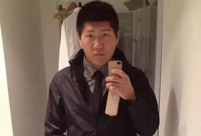

TOKYO, June 2 -- Following the announcement by Japanese Prime Minister Shinzo Abe that polling for the upper house election will begin on July 10, both the ruling coalition and opposition parties on Thursday began their campaign offenses.
In a bid to unseat Abe and oust his ruling Liberal Democratic Party-led coalition, which includes its Komeito ally, opposition parties have, in an unprecedented move, decided to join forces in endorsing candidates in all of the single-member electoral regions, of which there are 32 being contested nationwide.
The new opposition alliance ahead of the upper house election, will see the main Democratic Party and the Japanese Communist Party, along with smaller opposition outfits, unite in a universal campaign based on Abe's failings as the nation's leader.
Specifically, they are constructing a platform based on the fact that not only have Abe's economic policies dubbed "Abenomics" monumentally failed, as evidenced by the prime minister himself once again reneging on a tax hike promise and pushing the date back from April 2017 to October 2019, as announced Wednesday, but the opposition bloc will also mount attacks from other angles too.
Along with the failing of "Abenomics" they will also look to defeat the ruling camp on grounds that Abe's forced passage of controversial security bills following a unilateral cabinet decision to reinterpret a key clause of the constitution through parliament last year, with the law expanding the military scope of Japan's forces having come into effect recently -- albeit it in contravention of Japan's Supreme Law -- threatens to throw the nation against its will into potential military danger.
The opposition camp are gunning to see the law scrapped and the constitution, which prohibits Japan from maintaining a military, using force as a means to settle international disputes and decrees that Japan will forever renounce war, upheld.
Article 9 of Japan's pacifist Constitution has effectively, until Abe's unconstitutional moves, guaranteed Japan's safety and distance from war for the past seven decades since the end of WWII.
Abe, for his part, following the upper house election will seek a public referendum based on having a two-thirds majority in the lower house, on amending the war-renouncing clause of the Constitution, in a move that will erode decades of peace and security in Japan and see Japan's forces allowed to engage in armed conflicts at home, in the immediate region, as well as in active theaters oversees alongside its allies and to protect what it deems to be its own interests, or proactively deal with perceived threats to Japan.
This came despite a monumental public backlash to the move, with the majority of regular citizens opposed to the move and the best legal experts in the country along with constitutional scholars having all proved Abe's major security shift to be in contravention of Japan's Supreme Law.
However, against a backdrop of economic malaise, Abe is counting on another reboot of his economic policy blend to win the public over again ahead of the election and said at a press conference Wednesday that "the election race will be mandate on whether to continue with his 'Abenomics' monetary and fiscal policy mix to bolster the economy."
The prime minister is aiming to win a majority of the 121 seats being contested in the election, rather than just looking to win a minimum majority and with the LDP holding a majority of seats in the more powerful lower chamber of parliament, success for Abe in the upper house election would give him a super majority in the Diet and the ability to pass legislation with little resistance from the opposition camp.
To this point, Abe's top spokesperson, Chief Cabinet Secretary Yoshihide Suga said he believed that a win was almost a foregone conclusion for the ruling bloc, stating that, "We are not entertaining the possibility of failure."
Democratic Party leader Katsuya Okada, however, on Thursday, inked a deal with the party's support body the powerful Japanese Trade Union Confederation, known here as Rengo, which will add some firepower to the opposition camp's campaign, while Social Democratic Party leader Tadatomo Yoshida was quoted as describing the election as "a battle for the Constitution."
 French girl ties the knot with Chinese boy
French girl ties the knot with Chinese boy Beijing Style: ready for bare legs
Beijing Style: ready for bare legs Century-old station sees railyway evolution
Century-old station sees railyway evolution Enthusiasts perform Kung Fu at Wudang Mountain
Enthusiasts perform Kung Fu at Wudang Mountain Stunning photos of China's fighter jets in drill
Stunning photos of China's fighter jets in drill Monk's mummified body to be made into a gold Buddha statue
Monk's mummified body to be made into a gold Buddha statue Former Chinese solider of the French Foreign Legion seeks wife online
Former Chinese solider of the French Foreign Legion seeks wife online Asia's longest and highest suspension bridge to open to traffic
Asia's longest and highest suspension bridge to open to traffic China's first interactive robot looks like a beauty
China's first interactive robot looks like a beauty Top 20 hottest women in the world in 2014
Top 20 hottest women in the world in 2014 Top 10 hardest languages to learn
Top 10 hardest languages to learn 10 Chinese female stars with most beautiful faces
10 Chinese female stars with most beautiful faces China’s Top 10 Unique Bridges, Highways and Roads
China’s Top 10 Unique Bridges, Highways and Roads Art not porn
Art not porn Congestion fee needs careful deliberation
Congestion fee needs careful deliberation Beijing policemen probed for man’s death
Beijing policemen probed for man’s death Why does China get carte blanche for its insensitivity
Why does China get carte blanche for its insensitivityDay|Week